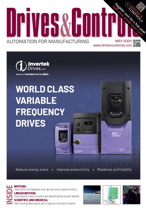- Home » News » World News
Emerson withdraws $29bn bid for Rockwell after target rejects it as poor value

UPDATED: Emerson has withdrawn its latest $29bn bid for Rockwell Automation "due to the Rockwell board of directors' continued unwilingness to engage in discussions about a potential combination".
In a statement, Emerson's chairman and CEO, David Farr, said:"We are disappointed that the Rockwell board refused even to discuss the potential combination of our two great companies. Instead of engaging in constructive dialogue, the Rockwell board decided to let this unique and value-generative opportunity to go unexplored."
Emerson made its latest unsolicited offer for Rockwell Automation, valuing the business at about $29bn, on 16 November, 2017, after Rockwell had rejected at least two previous offers. Rockwell's board rejected the new offer, saying that it: undervalued Rockwell and its prospects for continued growth and value creation; presented significant long-term risk for Rockwell’s shareowners; and would create a company that is not well-positioned to compete successfully in the evolving market.
The Rockwell board said it had considered Emerson’s latest bid “thoroughly”, but had determined that it is not in the best interests of Rockwell Automation and its shareowners. The board believed that continuing to execute Rockwell’s existing strategy, which is generating “extraordinary” returns for its shareowners, would create greater long-term value than accepting Emerson’s proposal.
Rockwell’s president and chief executive officer, Blake Moret, said that the company’s board and managers were “confident in the company, our strategic direction, and our ability to continue delivering exceptional shareowner returns and value creation in excess of Emerson’s proposal, particularly given the weakened position and dis-synergies that would result from combining our two organisations, and the risks associated with Emerson’s stock-based currency.
“Bigger is not always better for driving growth and value creation,” he added. “While Emerson may see this proposed acquisition as necessary to enhance its growth and earnings potential and expand its capabilities in the industrial automation and information market, Rockwell does not. We have the talent, the technology, the culture and the resources necessary to continue raising the bar, exceeding our customers’ expectations and creating superior value for Rockwell Automation shareowners.”
In a letter sent to Emerson CEO, David Farr, Moret said that Rockwell’s Connected Enterprise strategy was working and that it was “experiencing great success as the world’s largest company dedicated to industrial automation and information.
“Emerson’s proposed combination would destroy shareowner value and result in a less-competitive combined organisation,” he added.
Moret argued that Emerson’s proposed merger “would dampen, not enhance, the ability to grow in the evolving industrial automation and information market.”
He cited a recent analysis of the proposed transaction by Moody’s Investors Service which found that it “would initially result in a combined company with close to $25bn in debt and a pro forma ratio of debt to EBITDA approaching five times. This weakened financial position would impair the proposed company’s ability to make critical investments needed to support competitive differentiation and drive global growth”.

Moret went on to say that Emerson’s proposed combined business would have limited ability to make investments in areas such as connected services, analytics, and geographic expansion that, he believed, “are critical to long-term growth and value creation”, without compromising the return of capital to shareowners.
“The mere fact that the combined entity would be larger does not mitigate these risks,” Moret added. “Bigger is not always better for driving growth and value creation. Although your proposal appears to be based on a contrary view, Emerson’s decision to divest its drives and motors business – capabilities critical to process applications – demonstrates this awareness. While the proposed combined company would have a broader range of products and services, we believe it would be unable to match Rockwell Automation’s track record of delivering value to customers and shareowners.”
Another concern for Moret was that Emerson’ plans to achieve synergies would result in “a substantial loss of talent”. Rockwell’s success, he argued, is “largely attributable to our culture and the focus on attracting, developing, and retaining great employees and empowering them to do their best work. The cost synergies assumed in your proposal would result in significant job cuts and would undermine the ability to attract and motivate employees who can execute a long-term strategy that is designed to deliver results for customers and value for shareowners.”
According to Moret, Rockwell also lacked confidence in Emerson’s “ability to execute on an acquisition that is almost ten times larger than any prior Emerson acquisition, especially in light of Emerson’s M&A track record, which includes substantial write-offs from prior acquisitions, and an uncertain leadership succession plan”.
He gave the example of Emerson’s last hostile pursuit – of Chloride plc in 2010 – where Emerson subsequently wrote down the acquisition by $508m – about one-third of the purchase price – and sold it for a substantial loss.
“In light of the above,” Moret concluded, “the board of directors of Rockwell Automation has unanimously determined that Emerson’s proposal is not in the best interests of Rockwell Automation or its shareowners”.





